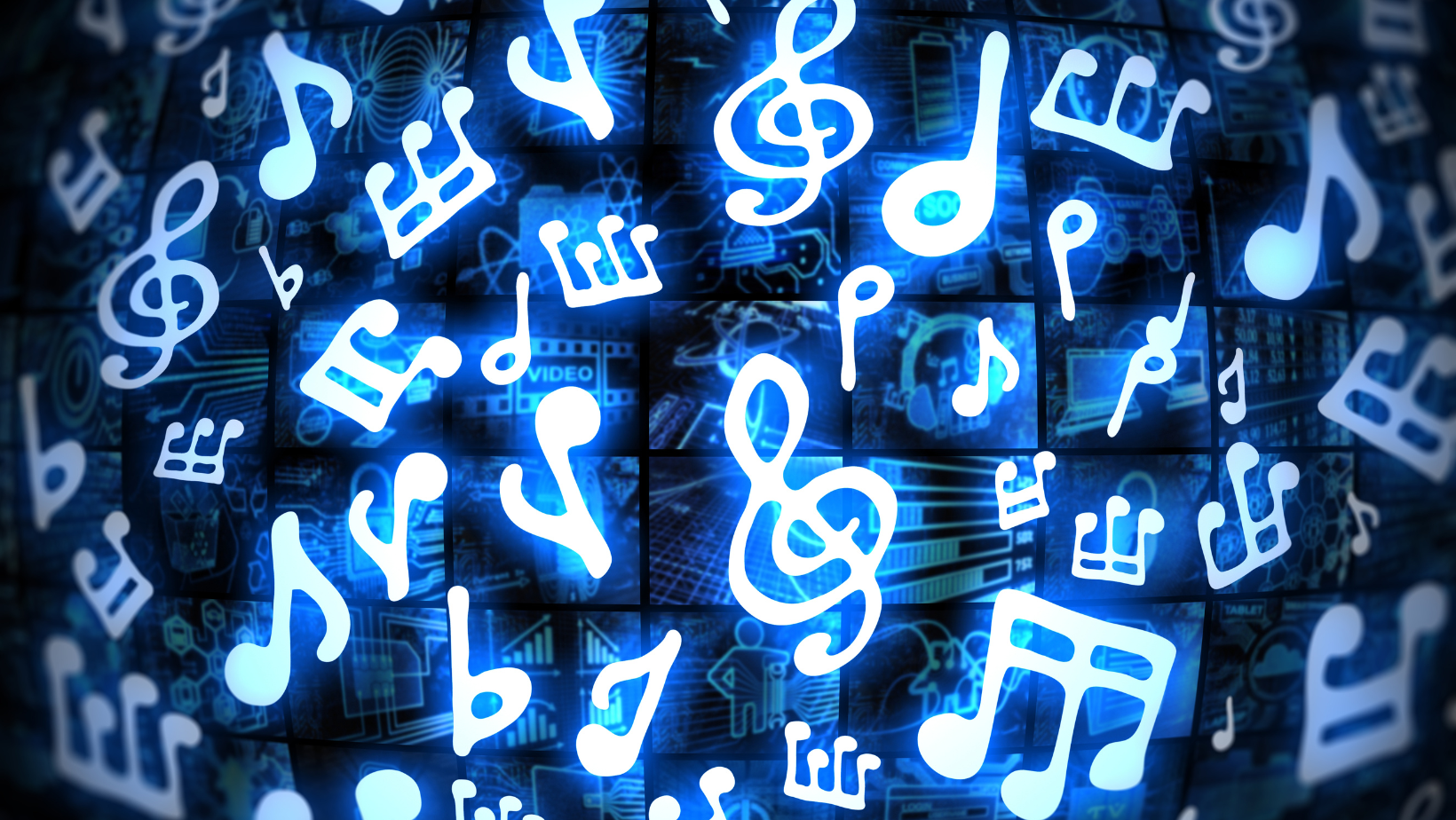In the symphony of progress, one instrument that’s been hitting high notes is music technology. It’s a fascinating blend of art and science, a harmonious marriage of melodies and microchips.
Stay tuned as we delve deeper into the rhythm of this revolutionary realm.
What is Music Technology
Definition and Basics
Delving into the realm of what is music technology, it revolves around an amalgamation of instruments, systems, and methodologies employed in the creation, recording, and manipulation of sound. Essentially, it transforms waves into emotions—taking the melodic concoctions in a musician’s mind and turning them into tangible tunes.
Key Components of Music Technology
In the constellation of music technology, certain components shine brighter due to their pivotal role. Two such stars are Recording Equipment and Music Production Software.
Recording Equipment
 Recording Equipment forms the foundation of music technology. It captures sound waves from surrounding environments, converting them into electrical signals. For instance, microphones and audio interfaces – integral tools in recording setups – ensure high-quality sound recording. Microphones, be it dynamic or condenser, capture acoustic energy and convert it into an electrical signal. Audio interfaces, on the other hand, transmit these signals to a computer, thus setting the stage for music production.
Recording Equipment forms the foundation of music technology. It captures sound waves from surrounding environments, converting them into electrical signals. For instance, microphones and audio interfaces – integral tools in recording setups – ensure high-quality sound recording. Microphones, be it dynamic or condenser, capture acoustic energy and convert it into an electrical signal. Audio interfaces, on the other hand, transmit these signals to a computer, thus setting the stage for music production.
Music Production Software
Next in command is Music Production Software, often called Digital Audio Workstations (DAWs). DAWs allow manipulation of the recorded audio signals, laying the groundwork for sound design and song creation. Examples include popular software like Ableton Live, Logic Pro and Pro Tools. They not only allow users to record and edit audio but also provide built-in sounds and robust mixing capabilities. In essence, DAWs serve as the comprehensive platform to transform simple audio signals into textured tunes, manifesting the musician’s imagination.
Impact of Music Technology on the Music Industry
The advent and proliferation of what is music technology brought about a seismic shift in the music industry. Music technology serves as a transformative tool, cascading a wave of substantial changes in both music production and distribution.
Changes in Music Production
 In the realm of music production, technology drastically improved efficiency and accessibility. Years ago, large and expensive professional recording studios monopolized music production; today, accessible software such as Digital Audio Workstations (DAWs) like Logic Pro, Pro Tools and Ableton Live, facilitate the entire process in one’s home. Thus, bedroom artists, armed simply with a laptop, can produce professional-quality tracks. Additionally, technology broadens creative possibilities for sound design and song creation, such as new software synthesizers and ‘Auto-Tune’, which corrects pitch in vocal performances, making anyone sound like a seasoned singer.
In the realm of music production, technology drastically improved efficiency and accessibility. Years ago, large and expensive professional recording studios monopolized music production; today, accessible software such as Digital Audio Workstations (DAWs) like Logic Pro, Pro Tools and Ableton Live, facilitate the entire process in one’s home. Thus, bedroom artists, armed simply with a laptop, can produce professional-quality tracks. Additionally, technology broadens creative possibilities for sound design and song creation, such as new software synthesizers and ‘Auto-Tune’, which corrects pitch in vocal performances, making anyone sound like a seasoned singer.
Furthermore, advancements in artificial intelligence gift producers with innovative tools, ushering a new era of music making.
Impact on Distribution and Consumption
 Also, music technology overhauled the distribution and consumption landscape. Traditional methods like brick and mortar music stores have given way to digital service providers (DSPs) such as Spotify and Apple Music. These platforms offer a win-win situation – artists can reach a global audience with a single upload, while listeners enjoy access to millions of tracks at their fingertips.
Also, music technology overhauled the distribution and consumption landscape. Traditional methods like brick and mortar music stores have given way to digital service providers (DSPs) such as Spotify and Apple Music. These platforms offer a win-win situation – artists can reach a global audience with a single upload, while listeners enjoy access to millions of tracks at their fingertips.
Moreover, AI develops curated playlists based on users’ music taste, providing a personalized listening experience. This technological trend denotes an evolution, with music transitioning from a product to a service.
Music technology journey from the advent of MIDI and personal computers to the rise of Digital Service Providers has been transformative. It’s clear that technology has not only democratized music production but also revolutionized its distribution. Innovations like Auto-Tune and digital platforms such as Spotify have significantly altered the industry landscape. The role of Digital Audio Workstations, like Ableton Live, Pro Tools, and Logic Pro X, in music production can’t be overstated. Simultaneously, Virtual Reality Concerts, as seen with MelodyVR and Wave, have redefined music consumption, offering immersive experiences. These developments underline what is music technology profound impact on both music creation and consumption. As we move forward, the industry’s future will undoubtedly be shaped by ongoing technological evolution.

